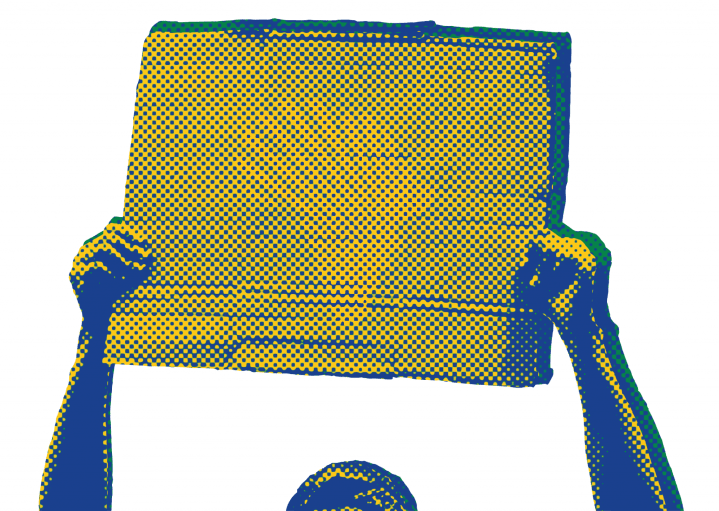SPONSORED CONTENT
The (Un)Heroic Journey of a Whistleblower

Whistleblowers often face severe consequences for acting in the public interest: retaliation from their employers (including termination of employment, ostracisation, relentless legal action), financial strain and, in acute cases, even physical harm or death. On top of that, some whistleblowers may also face public scrutiny and scepticism and are portrayed as ‘snitches’ and traitors, while others may live in obscurity and struggle to have their stories heard.
Reports on the public and private resources whistleblowers have safeguarded are extensive and whistleblowers play an essential role in democracies by ensuring accountability and transparency. Yet, despite these real outcomes, the journey of a whistleblower is often far from heroic.
Indeed, many whistleblowers become known to the public not so much for their fight against corruption, or for the promotion of responsibility, integrity and accountability, but for the tragic personal consequences they suffer. In South Africa, we are frightfully familiar with this hard truth.
Today, State Capture whistleblowers are rightfully celebrated as heroic individuals who acted in the name of justice and the public good at significant personal risk. We can say a great deal about the personal sacrifices made by these whistleblowers and, on account of these sacrifices, that few people would have done the same. It takes immense courage to blow the whistle.
The Platform to Protect Whistleblowers in Africa (PPLAAF) supports whistleblowers who risk their livelihoods for the public interest. One such whistleblower is Maria*, who – in order to protect herself from further harm – has chosen to remain anonymous. Maria is a 60-year-old single mother and, in 2014, she blew the whistle on a South African State-Owned Enterprise. Maria was concerned about the actions of the then-CEO’s approval of irregular salary adjustments. Her reports on the matter were met with disregard and her refusal to remain silent led to her suspension. She faced a disciplinary hearing on 48 spurious charges, which Maria describes as a “witch-hunt”. Ultimately, her contract was terminated and for almost ten years now, she has borne the brunt of blowing the whistle.
Maria did not know about the various legal mechanisms in place to protect whistleblowers. She referred the unfair dismissal dispute to the Commission for Conciliation, Mediation and Arbitration (CCMA) but her employer managed to have the matter postponed numerous times. Maria was under the impression that a settlement would be reached, however, by the time the matter concluded in 2019, her contract had expired, and the CCMA confirmed her dismissal. Maria’s case clearly demonstrates the need for continued and relentless awareness-raising on whistleblower legislation.
In the aftermath of her dismissal, Maria’s professional life was “lonely” as her colleagues were told not to speak to her. She was seen as a “person who could not be trusted”. Maria now avoids social gatherings altogether, explaining that “once you say you are a whistleblower, people tend to be careful and uncomfortable in your presence”.
Maria also lost her financial security after her contract was terminated; the effects were dire for her and her family. “They will make sure that they will break you financially,” Maria told PPLAAF. Initially, Maria was informed of her termination while recovering from an operation in hospital. Subsequently, her medical aid was terminated and she could not afford post-operation check-ups.
As a single mother, Maria’s journey as a whistleblower caused havoc for her family. It impacted her relationship with her two children who had their lives suddenly and permanently changed. Maria could no longer afford to provide them with the same life they had before. Maria’s daughter, who had been studying at the University of Pretoria, had to halt her studies and return home because Maria could no longer afford her fees.
Maria had to cover her legal costs using her pension fund which, today, stands almost entirely depleted. Maria has struggled to rebuild this fund since, particularly because her reputation as a whistleblower precedes her in any employment opportunity. Now, at 60, Maria can only hope that she can work long enough to support herself and her family.
“You either give up or you fight, and hence I had to fight.”
When asked if she would do it again, Maria struggled to respond. After some consideration, she stated that “it is more about the moral issue”, and that she could not stand by and remain silent. One thing Maria would change is that she would blow the whistle in a safer way by seeking help and support – such as that offered by PPLAAF – at an earlier stage. PPLAAF is there to advise potential whistleblowers on how to blow the whistle thoughtfully, safely, and strategically.
Maria hopes that her case, like many others, promotes the message that “you can still be ethical in a world of corruption.”
While facing a difficult and uncertain future, some whistleblowers have made a significant impact on the public sphere and others have not. Maria’s story is sadly not uncommon, and it deserves to be told. As it stands, the system for protection is largely unsupportive. For whistleblowers like Maria, the heroic act of speaking out inevitably leads to a journey that is far from heroic. It is then essential to acknowledge and support all whistleblowers, not only for their bravery, but for their contributions to transparency, accountability, and justice.
PPLAAF is a non-governmental organisation established in 2017 to protect whistleblowers, as well as to advocate for better whistleblower protection and to engage in strategic litigation on whistleblowers’ behalf when their revelations deal with the general interests of African citizens.
For more information on PPLAAF, please visit www.pplaaf.org DM
Author: Gemma-Maé Hartley, Regional Project Officer, PPLAAF Southern Africa

















 Become an Insider
Become an Insider